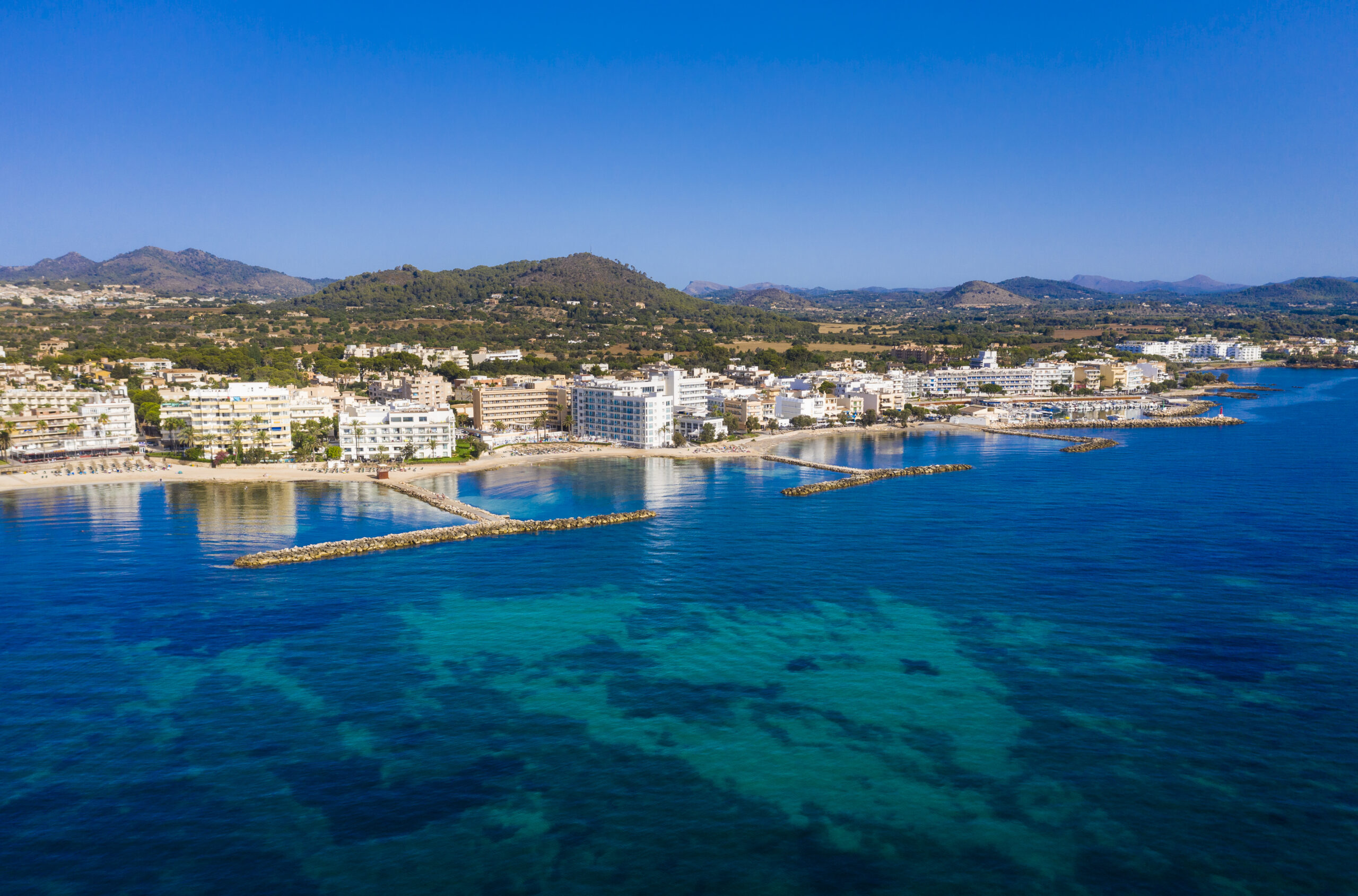
© Consorci de Turisme de Son Servera i Sant Llorenç des Cardassar
The resort of CALA MILLOR has 8 beaches: Cala Millor, Sa Coma, S’Illot, Cala Bona, Sa Marjal, Port Roig, Es Ribell and Es Ratjolí.
We want you to enjoy our beaches and we would also like to ask you to help us protect them. For this reason, we invite you to learn about their ecological importance.
Posidonia oceanica is a marine phanerogam (with roots, a stem, leaves, flowers and fruits) endemic to the Mediterranean Sea. Its presence indicates good water quality and it is one of the reasons Sa Punta de n’Amer was included in the Natura 2000 network as a Site of Community Importance (SCI). The extensive meadows it forms are one of the richest marine ecosystems on the coast. As the posidonia leaves decompose they produce long fibres that resist putrefaction and end up forming the so-called “sea balls”.

The Blue Flag is a distinction awarded annually by the European Foundation for Environmental Education to beaches and ports that meet a series of environmental requirements and have the appropriate facilities. Our area has renewed its blue flags on the following beaches: Sa Marjal, Costa dels Pins, Cala Millor and Sa Coma and in the port of Cala Bona. This guarantees optimum conditions on our coast.
We have received these awards thanks to the excellent quality of our bathing waters and the facilities provided on the beaches and in the ports, including toilets, showers and cleaning and maintenance services. It is a certificate that guarantees the quality of the beaches and the port of Cala Bona and helps us promote the area as a first class holiday destination.
A Blue Flag flying over a beach recognises and stimulates the efforts of local communities to ensure that they meet the stipulated criteria for legality, accessibility, sanitation, cleanliness and safety, as well as offering suitable information and an environmental management system.
© Consorci de Turisme de Son Servera i Sant Llorenç des Cardassar
This website uses cookies so that we can provide you with the best user experience possible. Cookie information is stored in your browser and performs functions such as recognising you when you return to our website and helping our team to understand which sections of the website you find most interesting and useful.
Strictly Necessary Cookie should be enabled at all times so that we can save your preferences for cookie settings.
If you disable this cookie, we will not be able to save your preferences. This means that every time you visit this website you will need to enable or disable cookies again.